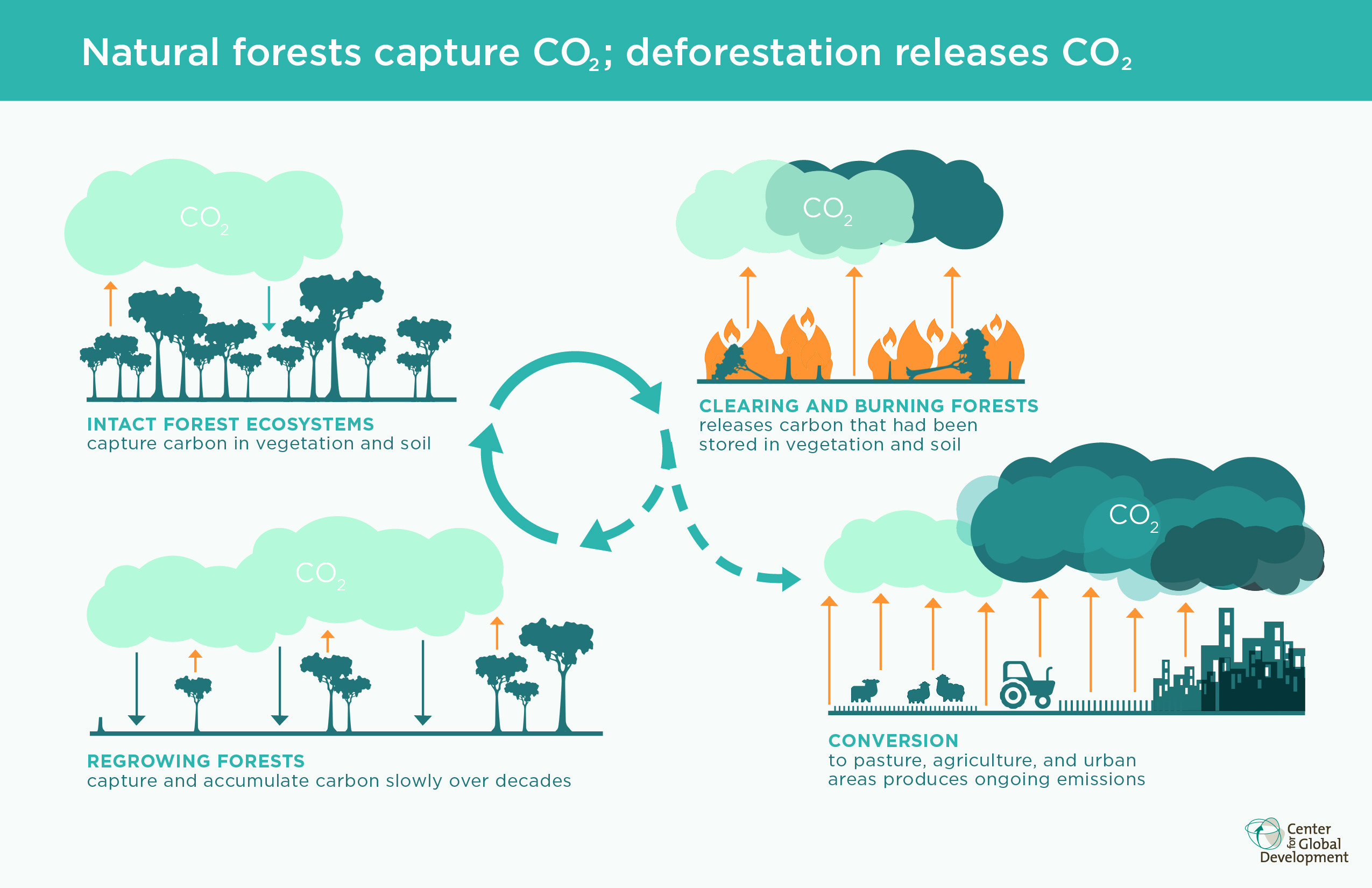France will curb palm oil and beef imports to fight 'imported deforestation'

Between 1990 and 2015 the world's forest area fell by 129 million hectares.
Image: REUTERS/Bruno Kelly
Stay up to date:
France
France set out plans on Wednesday to tackle deforestation around the world, saying it would look to curb imports of products such as palm oil, soy, and beef which it said contributed to the problem of forest areas disappearing.
Palm oil, a type of vegetable oil used in confectionery and other goods, is controversial because of the environmental impact of clearing forests to make way for plantations.
The majority of the world's palm oil comes from Malaysia and Indonesia, where deforestation has threatened orangutan populations.
In a joint statement, five French ministries said that in between 1990 and 2015, the world's forest area fell by 129 million hectares (319 million acres) -- eight times the size of France's mainland forest. "(This lead) to an 11 percent increase in greenhouse gas emissions and significant consequences in terms of preserving biodiversity and natural habitats," they said.
"European countries bear an important responsibility, since a third of this deforestation is due to the consumption of agricultural products by the countries of the European Union."
Companies and governments - including the European Union - made multiple pledges to halt deforestation in recent years but progress in dealing with the issue has been slow.

France proposed 17 measures aimed at putting a halt by 2030 to deforestation caused by imports of non-sustainable forest or agricultural products.
These include financial aid to encourage developing countries to respect non-deforestation criteria, the launch of a "zero deforestation" label for consumers by 2020 and a push next year for a European policy on imports posing a risk for forests.
As part of a renewable energy bill adopted on Tuesday, the EU said it would phase out biofuels containing feedstock that contribute to deforestation by 2030. France echoed this measure on Wednesday.
In May, France had allowed a limited use of palm oil at Total's planned La Mede biofuel refinery, a move that prompted an outcry from environment activists and farmers who said the palm oil would be imported.
Former environment minister Nicolas Hulot said soon after his appointment last year he would limit the use of palm oil in biofuels in France to reduce deforestation in the countries of origin, raising outcry from Indonesia and Malaysia, but he took no concrete measures to do so.
Don't miss any update on this topic
Create a free account and access your personalized content collection with our latest publications and analyses.
License and Republishing
World Economic Forum articles may be republished in accordance with the Creative Commons Attribution-NonCommercial-NoDerivatives 4.0 International Public License, and in accordance with our Terms of Use.
The views expressed in this article are those of the author alone and not the World Economic Forum.
Forum Stories newsletter
Bringing you weekly curated insights and analysis on the global issues that matter.
More on Nature and BiodiversitySee all
Jack Hurd and Florian Vernaz
May 21, 2025
Madeleine North
May 20, 2025
Dipali Khandelwal and Hemlata Chauhan
May 19, 2025
André Vasconcelos and Jack Hurd
May 15, 2025
Oscar Castañeda Samayoa
May 15, 2025





